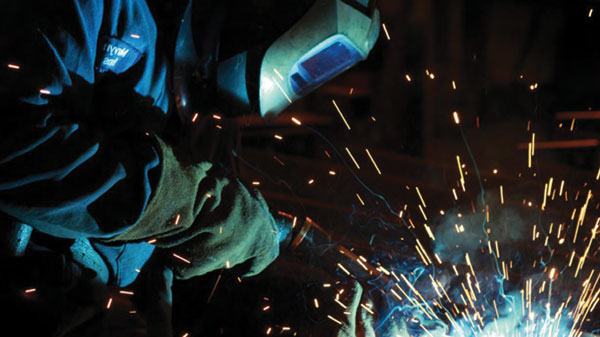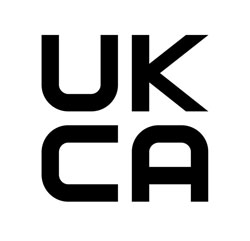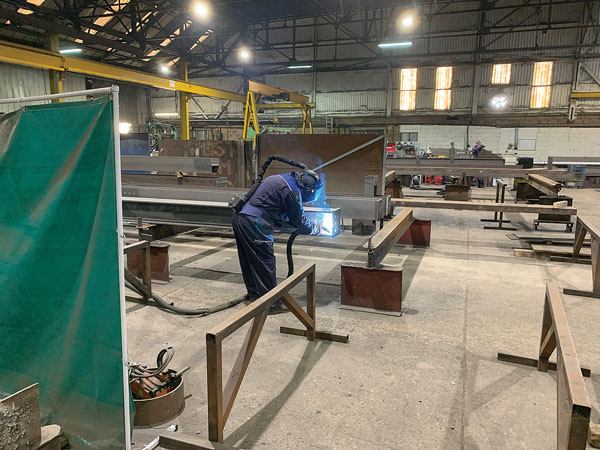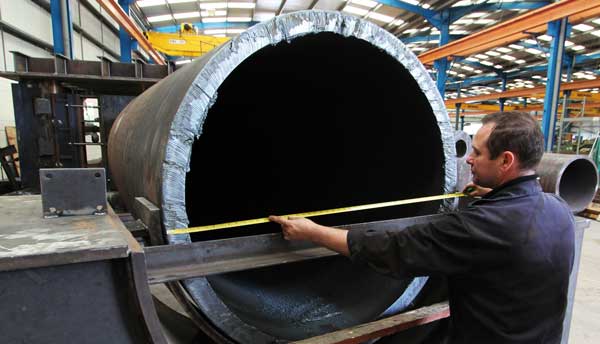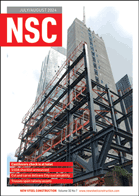Projects and Features
CE Marking of fabricated constructional steelwork is a legal requirement – are you at risk?
In this article, NSC explains when CE marking will end in the UK and when it will be superseded as a legal requirement by UKCA marking.
In recent months, there has been some confusion over CE and UKCA marking, in particular which one is required and when the transition period for CE marking ends. Construction products, such as fabricated constructional steelwork, fall within the Department for Levelling Up, Housing and Communities (DLUHC) remit, and they have mandated that CE marking will end in the UK on 30th June 2025 and be replaced by UKCA marking.
Why the confusion?
The Department for Business and Trade (DfBT) is responsible for the CE Marking of products that fall within 18 different regulations from toys to low voltage electrical equipment. However, none of these regulations include constructional steelwork because this is a construction product, and such items are the responsibility of DLUHC. On the 1st August 2023, DfBT announced the extension of the use of CE marking for the products it manages beyond the December 2024 deadline for 18 product types that fall within its remit. This announcement did not apply to construction products including constructional steelwork.
What is the difference between CE and UKCA Marking?
CE marking is required for any product that is covered by either a harmonised standard or or an European Technical Standard (ETA) that is placed on the EU market and four of the European Free Trade Association (EFTA) countries. For Construction products such as constructional steelwork, CE marked products may be placed on the UK market until 30th June 2025. UKCA marking is required for any product that is covered by a designated standard that is placed on the UK market. The requirements for Northern Ireland are different from the rest of the UK and here CE marking and UKCA marking may be used indefinitely.
Why do we need to UKCA/CE Mark Structural Steelwork?
The Constructional Products Regulation (CPR) legally required steelwork contractors to CE/UKCA Mark their fabricated steelwork to BS EN 1090-1 and put in place a Factory Production Control (FPC) system that controls the quality of fabrication. Furthermore, constructional steelwork products are deemed safety critical by the Construction Products Regulations, so fabricators have their FPC processes audited by an Approved or Notified body which will award an FPC certification, stating which execution class the fabricator has achieved.
Who does this apply to?
There are three main ‘actors’ in the process, each of which have a legal responsibility to ensure that their goods are CE/UKCA marked and have appropriate documentation for traceability. The three ‘actors’ with reference to the constructional steelwork supply chain are described below.
- Manufacturers – this includes steelmakers such as Tata Steel and British Steel, constructional steelwork contractors and distributors who also operate as service centres
- Distributors – also known as steel stockholders
- Importers of structural steel
To keep on the right side of law and to mitigate any penalties, a CE marking certificate and a Declaration of Performance (DoP) must be provided to clients when the product is placed on the market.
What are the implications of Structural Steelwork without CE/UKCA Marking?
As stated, it is a legal requirement to CE/UKCA mark constructional steelwork when it’s placed on the market and to provide both a CE/UKCA Marking certificate and a DoP. There are a several bodies that enforce CE/UKCA Marking to ensure that the legislation is not applied incorrectly and that the products meet safety requirements. For the construction products market, surveillance is carried out by Trade Standards in the UK and district councils in Northern Ireland. A company found to be supplying fabricated steelwork which does not meet legal requirements can be forced to take the product off the market or face a fine of £5,000. In more serious instances where the ‘controlling mind’ is identified, the person can be tried and sent to prison, with all products removed from the market and the company closed.
Building Safety Act 2022
In light of the Building Safety Act 2022 and the new legislation, which is being shaped and released, as well as new Regulating Bodies being formed; it can only be assumed that this will be policed even more, given constructional steelwork is deemed safety critical. So, make sure you only use suppliers who have the right stamp of quality and proof of safety to give you assurance that you are not breaking the law.
BCSA Register of Qualified Steelwork Contractors
The British Constructional Steelwork Association (BCSA) holds the Register of Qualified Steelwork Contractors, who are all vetted and undertake an annual assessment by 3rd party assessors. Safety, competency and quality is paramount in the industry, so if a company wishes to join the register and does not have a FPC and Welding certification, they cannot start the assessment process until they achieve one. T








